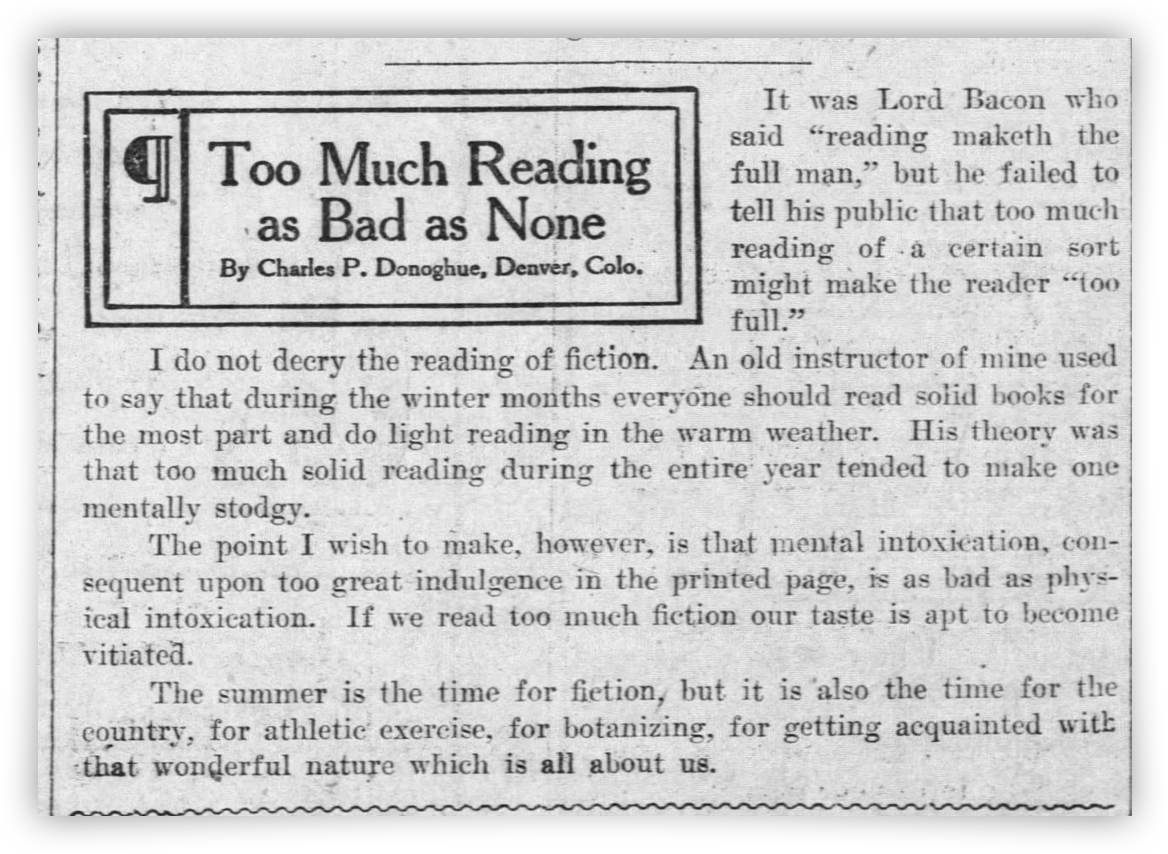19th and 20th Century New Years Resolutions
Virtues of today - like reading books and cycling - were considered vices in the past.
By @louisanslow - Curator of Pessimists Archive
In the 20th century, certain habits that are now considered GOOD and even necessary for a healthy lifestyle were seen as unhealthy. We listed habits that are now considered good that people may have committed to stop as a new year's resolution 100 years ago:
📚 CUT BACK ON READING: In the 19th and 20th century, novel reading became a popular past-time that swept America and the world. As all types of books became cheap and abundant, reading ‘too much’ began to become a topic of debate. Novels it was thought, lead young women to seek risk and novelty, while it was blamed for violent criminal acts by young men.
🚳 STOP RIDING A BICYCLE: Bicycle riding was a relatively new form of transportation in the 19th century, and it was seen by some as dangerous or unseemly, especially for women. Some physicians argued it was linked to insanity while others said it would cause physical deformities of the spine and face. Some insurance companies even refuse to insure avid bicycle riders.
🎙️ QUIT LISTENING TO RECORDED MUSIC: In the 19th century, music was often played live or on mechanical instruments such as pianos or organs. When recorded music emerged it was treated with disdain by musicians and less ‘classy’ than live music, some said it would replace bedtime lullabies.
🛼 QUIT ROLLERSKATING: Rollerskating was a popular form of recreation in the late 18th and early 19th century, but it was often seen as a dangerous or reckless activity. It was the subject of criticism due to its perceived negative consequences. Some argued that roller skating can lead to deformities of limbs and effects upon carriage or gait, potentially causing physical injuries or impairments. Others claimed that roller skating could stunt the anatomical development of children, suggesting that it is not suitable for their physical growth and development. In addition, roller skating was linked to reduced church attendance, as it is seen as a distracting or sinful activity that interferes with religious practices or beliefs.
🛌 QUIT READING IN BED: In the 19th century, it was often believed that reading in bed could strain the eyes and lead to poor sleep. In the same way smartphone use is considered a dysfunctional vice in the bedroom, so was reading in bed.
Tedium Newsletter
We collaborated with tedium.co to publish our deep-dive on how the coronation of Queen Elizabeth II was almost banned from being broadcast live.
Tedium is a great newsletter that explores “the history of things that usually don’t have histories written about them”, we are kindred spirits and we wanted to highlight other articles you should read.












